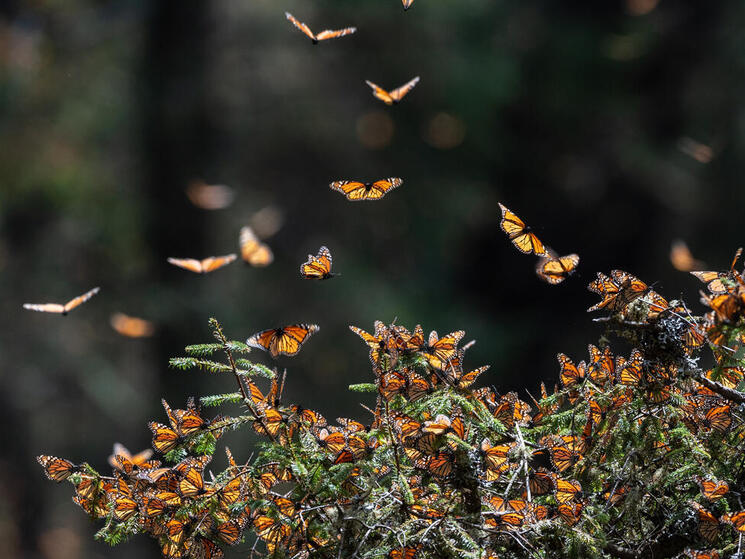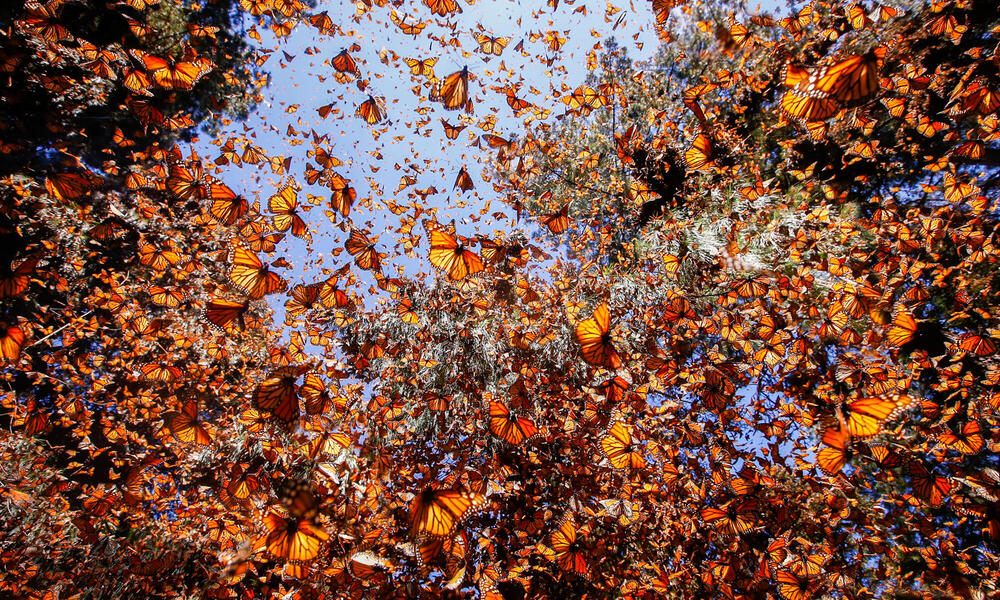
WWF helps monarchs take flight this Earth Day
- Date: 13 April 2023
In the lead-up to Earth Day on April 22, WWF is celebrating Monarch Week to call attention to the dramatic decline of the migratory monarch butterfly population. The week-long campaign encourages millions of Americans to help stem the decline of the charismatic species by planting critical milkweed habitat needed along its annual migration route and supporting WWF’s global conservation efforts.
This year WWF is also partnering with world-renowned Chef José Andrés and his Washington, DC-based restaurant Oyamel. From April 17-23, Jose and WWF will be connecting with social media followers and restaurant patrons about the need to save the migratory monarch butterfly. Digital and in-restaurant materials will highlight the plight of the monarch butterfly, WWF’s work to conserve the species, and invite people to take action.

About the migratory monarch butterfly:
- The migratory monarch butterfly has become an enduring symbol of nature’s beauty and renewal. But sadly, the eastern migratory monarch butterfly populations have drastically declined in the last 25 years. When we think of wild animals losing their habitats, we usually think of pandas and tigers in faraway places – but monarch butterflies are losing their homes right here in our own backyard due to climate change and the loss of critical milkweed habitat.
- Milkweed is essential to monarch butterflies: It is the only plant on which they lay their eggs and the only source of food for baby monarch caterpillars. But the increased use of herbicides in agricultural expansion and the paving over of land have destroyed millions of acres of milkweed—so much so that the eastern migratory monarchs are now classified as endangered.
- Every year, monarch butterflies embark on a marvelous migratory journey – traveling between 1,200 and 2,800 miles or more from the United States and Canada to central Mexico. There, the butterflies congregate in the Oyamel forests of the Monarch Butterfly Biosphere Reserve where they hibernate from early November to Mid-March. They mate and migrate back to the U.S. where they look for milkweed to lay their eggs so the monarch caterpillars can feed from it.
Why are monarch butterflies relevant?
The monarch a migration is unique in nature; in addition, they play a critical role as pollinators along their journey. Pollinators like butterflies and bees help provide a huge amount of the food we all enjoy; 80% of the vegetables and fruits depend on pollinators.
How can people help?
- Everyone can help protect the endangered migratory monarch butterfly by planting “native” milkweed and nectar plants in their backyards, community centers and anywhere along monarch migration routes. You can visit wwf.org/monarch to learn what kind of milkweed you should plant.
- Donate to WWF with a symbolic monarch butterfly adoption.
- Talk about the plight of the monarch among friends and family and encourage them to visit wwf.org/monarch to learn how to help and join.